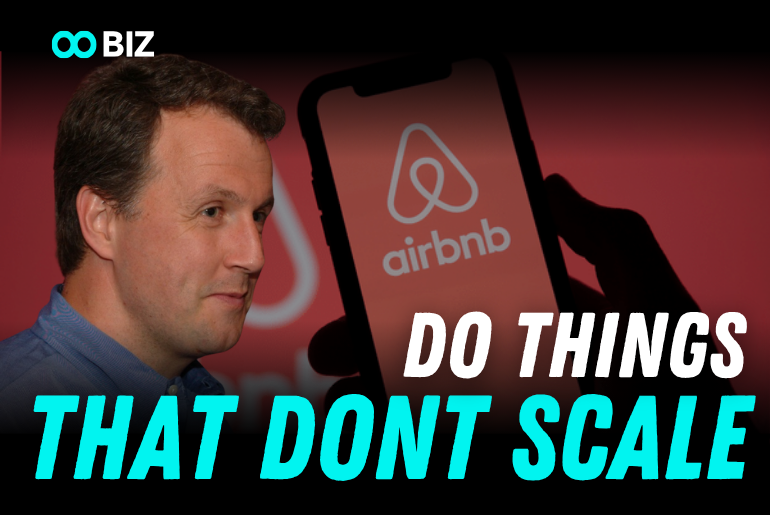In today’s world of automation, AI, and scale-hungry startups, founders often feel pressured to “build for millions” from day one. But Paul Graham, co-founder of Y Combinator, offers a timeless piece of advice:
“Do things that don’t scale.”
At first glance, it sounds counterintuitive. Why do things that can’t be repeated or scaled up?
Because in the early days, what you need is not scale — it’s traction, insight, and trust.
🧳 Airbnb: Founders Flying to Take Photos
In Airbnb’s early days, they didn’t rely on performance marketing or viral loops. Instead, co-founders Brian Chesky and Joe Gebbia flew to New York, visited hosts in person, helped them take high-quality photos, rewrote listing descriptions, and coached them on how to be good hosts.
This was not scalable. But it built trust and engagement — the foundations of a two-sided marketplace.
“We weren’t looking for growth hacks. We were making sure our product actually solved a problem.”
🔧 Stripe: Manual Integration for Every User
Stripe, the payment giant, used a similar “unscalable” approach. Instead of sending users API docs, co-founder Patrick Collison would say: “Just give me your website. We’ll set up Stripe for you tonight.”
They manually onboarded developers, wrote the code themselves, and made sure payments worked flawlessly — before automating a single thing.
That’s how Stripe got their first loyal customers and refined their developer-first product experience.
💬 Tencent QQ: Pretending to Be Female Users
Back in the early 2000s, Tencent’s QQ messaging app had a cold start problem — no users, no activity. So what did they do?
Founder Pony Ma and his team created fake female accounts and started chatting with new users. It created the illusion of engagement and made people want to come back.
Yes, they were pretending. But they were also listening, learning, and manually creating value where none existed.
🚫 Unscalable ≠ Waste of Time
When you’re just starting out, you don’t need 10,000 users — you need 10 users who care. And to win them over, you often have to do things that don’t scale:
- Call them. Meet them. Help them use your product.
- Manually send emails. Solve their problems one by one.
- Talk to them like humans, not data points.
These actions build empathy, surface real feedback, and help you find product-market fit faster than any dashboard can.
🛡️ The One Thing That Can’t Be Copied: Your Effort
Unscalable actions — especially those rooted in genuine care and hustle — create bonds and loyalty that no automation can replace. Your competitors can copy your features. But they can’t copy your early user relationships.
🔚 Conclusion
If you’re just starting your company, forget scale for now.
Forget automation. Forget dashboards.
Instead, show up. Send the message. Call the user. Write the manual response. Knock on doors.
Do things that don’t scale — because that’s where startup magic begins.
💡 “Success hides in the unscalable things you do when no one’s watching.”




